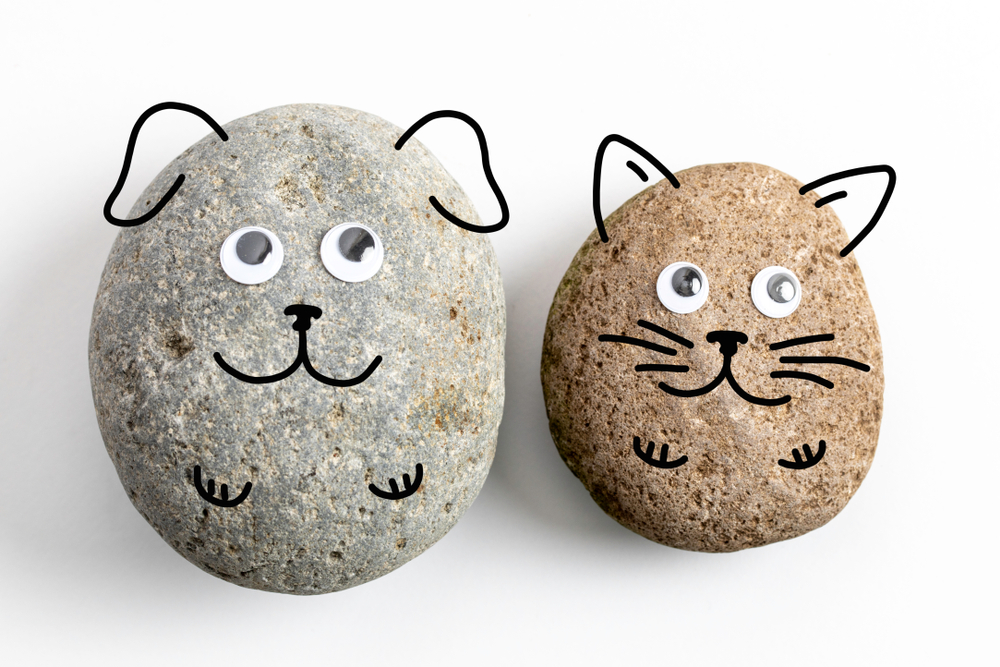When it comes to making money, people have come up with some truly bizarre methods. Whether driven by necessity, ingenuity, or just plain eccentricity, these money-making schemes are anything but ordinary. Imagine looking for a side hustle and stumbling upon these unconventional gigs. Get ready to dive into a world where creativity meets the need for cash. Here are 13 of the weirdest ways people have turned odd ideas into income.
1. Sell Air

Yes, you read that right—people are actually selling air. In places where pollution is a daily concern, like China, there’s a market for bottled fresh air from cleaner environments. A Canadian company called Vitality Air began selling bottled air from the Rocky Mountains to smog-engulfed cities. According to financial analyst Joe Andrews, this business model taps into real consumer demand for clean air in urban areas. What started as a joke has turned into a profitable venture, with bottles selling for $14 to $20 each.
While it may seem strange, selling air taps into a universal desire for purity and wellness. In a world where pollution levels are on the rise, people are willing to pay for a breath of fresh air. It’s a stark reminder that what we often take for granted can become a valuable commodity. The concept of monetizing air challenges our perceptions of natural resources and highlights the lengths people will go to for a slice of clean living. It’s a business model as ethereal as the product itself.
2. Rent Out Their Friend

Imagine turning friendship into a cash-making opportunity. In Japan, this concept has been commercialized through services where you can rent a friend for companionship. These services cater to people who are lonely or in need of social interaction without the strings attached. Rent-a-friend companies offer a wide range of companions for various activities, from attending events to simply having a chat over coffee. It’s an innovative solution to combat loneliness, but it also raises questions about the nature of genuine friendship.
On the flip side, renting out your friendship can be a lucrative business for those willing to engage with strangers. The concept challenges traditional views on friendship, transforming it into a transactional relationship. While it may seem impersonal, for some, it’s a lifeline to social interaction they would otherwise lack. However, the ethics of monetizing social interactions remain a topic of debate. Whether viewed as ingenious or impersonal, it’s a unique way to capitalize on human connection.
3. Play A Professional Mourner

In some cultures, mourning is a public display of grief, and professional mourners are hired to amplify this sentiment. In places like China and Africa, these mourners are paid to attend funerals and express sorrow on behalf of the deceased’s family. Their role is to enhance the atmosphere of the funeral, ensuring the departed are mourned appropriately. According to cultural anthropologist Diane Fox, professional mourners have been part of human history for centuries, acting as facilitators of communal grieving. While it may seem odd, the tradition holds deep cultural significance.
For the mourners, it’s more than just a paycheck; it’s a way of preserving tradition and honoring the deceased. The emotional labor involved in such a job shouldn’t be underestimated, as it requires the mourner to embody genuine emotions on demand. Professional mourning is a testament to the varied ways people express grief and respect. It’s a reminder that even in sorrow, there’s room for creativity and entrepreneurship. Though it may seem peculiar, professional mourners play an important role in many cultural farewell rituals.
4. Stand In Line

Standing in line is nobody’s favorite pastime, yet some people have turned this tedious task into a moneymaking gig. In major cities, where time is as valuable as money, people are willing to pay others to hold their place in line. This service is popular for events, product launches, and even at busy eateries. Line-standers charge by the hour, and rates vary depending on demand. For some, it’s a flexible way to earn cash without requiring a specific skill set.
The rise of this service speaks to a society that values convenience and efficiency above all else. It allows those with more disposable income to avoid wasting their time, a precious resource. While the job may lack glamor, it offers flexibility and the opportunity to meet interesting people during the wait. It’s a job born out of necessity and fueled by the hustle and bustle of modern life. So, the next time you see a long queue, remember there’s money to be made in standing still.
5. Sell Virtual Property

In the digital age, even virtual spaces hold real-world value. Online platforms and games like Second Life and Entropia Universe allow users to buy, develop, and sell virtual real estate for real money. People invest time and money in enhancing these digital properties, flipping them at a profit. Economist Lisa Howard notes that virtual economies reflect real-world market principles, offering insight into digital consumer behavior. It’s a fascinating blend of gaming and business acumen.
Selling virtual property might sound like a dream job for video game enthusiasts, but it’s a serious business. The virtual real estate market requires strategic planning and a keen understanding of digital landscapes. As technology advances, the line between virtual and reality continues to blur, opening new opportunities for entrepreneurship. While some may scoff at the idea of selling non-tangible assets, others see it as an exciting frontier for investment. It’s a testament to how far technology and imagination can stretch the concept of property ownership.
6. Collect Dog Poop

Not the most glamorous job, but someone has to do it—and apparently, there’s money to be made. Pet waste removal services have sprouted up in urban areas where busy pet owners are willing to pay for the convenience. These businesses offer regular clean-up services, ensuring that yards and communal spaces remain clean and odor-free. It’s a dirty job, but it eliminates a common nuisance, providing a valuable service to pet owners. For some, it’s a straightforward business model with recurring revenue.
While it might sound unpleasant, being a professional pooper-scooper has its perks. It requires little more than a strong stomach, a solid work ethic, and some basic equipment. Plus, there’s the satisfaction of knowing you’re making someone else’s life easier. The job also offers flexibility and the potential for expansion into related services like pet sitting. It’s a reminder that where there’s a problem, there’s often a profit to be found.
7. Act As A Human Billboard

Wearing advertisements isn’t just for race cars and sports teams. People have turned themselves into walking billboards, selling ad space on their clothing or even their skin. It’s a job for those who don’t mind sporting logos or messages for cash. According to advertising expert Richard Bailey, this form of guerrilla marketing can be surprisingly effective in capturing attention in high-traffic areas. While unconventional, it’s an example of using your own body as a canvas to make money.
The appeal lies in its simplicity, as it requires no technical skills or investment beyond one’s wardrobe or skin. However, the job can come with social implications, as wearing certain advertisements may attract unwanted attention or judgment. It’s a bold statement about consumer culture and the lengths people will go to become part of the advertising world. Despite the potential drawbacks, being a human billboard offers a unique way to participate in the advertising industry. It’s a personal business venture that turns the self into a platform for promotion.
8. Sell Worn Clothing

The secondhand clothing market is booming, but some people have taken it a step further by selling worn items as a niche business. Whether it’s well-loved sneakers or vintage shirts, there’s a market for clothing with a story. This trend is partly driven by the desire for sustainable fashion and the charm of pre-owned goods. For sellers, it’s an opportunity to declutter while making a profit. It’s a business model that combines fashion, sustainability, and a touch of character.
Selling worn clothing can become a lucrative side hustle with the right approach. Many turn to platforms like Depop or eBay to reach their audience, each item telling its own unique tale. The key is in marketing the story behind the clothes, adding value through authenticity. It’s a testament to the enduring appeal of thrifting and the power of nostalgia. The job is creative, flexible, and sustainable, fitting perfectly into the modern economy’s demand for conscious consumerism.
9. Become A Professional Cuddler

In a world where many long for human connection, professional cuddlers provide a service that’s both intimate and therapeutic. Cuddle therapists offer sessions where people can enjoy platonic touch, helping to alleviate stress and loneliness. It’s a service that requires empathy and clear boundaries, offering comfort in a safe environment. For clients, it’s a way to experience human touch without the complexities of a relationship. Despite skepticism, the demand for professional cuddling shows no signs of waning.
Professional cuddling is more than just a job; it’s about creating a space where people feel valued and understood. Practitioners often undergo training to ensure they provide a safe and respectful experience. The sessions can be a source of healing for those who lack physical affection in their lives. It’s a unique business that capitalizes on the fundamental human need for connection. Whether viewed as comforting or unconventional, professional cuddling is a testament to the diverse ways people seek comfort.
10. Name Other People’s Babies

Choosing a baby name is a big decision, and some parents are outsourcing the task to experts. Professional baby naming services offer parents creative and meaningful suggestions for their new arrivals. These experts consider various factors, such as cultural significance and future implications, in their recommendations. For some, it’s an opportunity to ensure their child stands out in a world full of Emmas and Liams. While unconventional, it’s a service that underscores the importance of names in personal identity.
The job isn’t just about creativity; it involves research and understanding naming trends. Baby namers often have backgrounds in linguistics, branding, or psychology, bringing a professional touch to the task. It’s a niche market, but for those with a knack for names, it can be a rewarding business. The growing demand reflects parents’ desires to give their children a unique identity right from the start. It’s a reminder that even in the most personal decisions, some people are willing to seek expert advice.
11. Sell Wedding Speeches

Public speaking isn’t everyone’s forte, and when it comes to weddings, the pressure is on. For those who struggle with words, professional speechwriters can save the day. These writers craft personalized speeches for wedding parties, ensuring memorable and heartfelt messages are delivered. It’s a service that combines creativity with emotional intelligence, helping clients express their feelings appropriately. While some might view it as outsourcing sincerity, it ensures that special moments are celebrated with the right words.
Writing wedding speeches requires a talent for storytelling and an understanding of personal dynamics. It involves capturing the essence of relationships in a way that resonates with both the speaker and the audience. The job is about more than just writing; it’s about helping people articulate their emotions on one of the most important days of their lives. For those with a way with words, it’s a chance to be part of something meaningful. It’s a unique intersection of creativity, emotion, and entrepreneurship.
12. Create Viral Memes

Memes are the language of the internet, and some people have turned them into a moneymaking venture. Mememakers create viral content that captures the zeitgeist, often selling these creations to brands for marketing campaigns. It’s a job that requires a keen sense of humor and an understanding of digital trends. As brands seek to connect with younger audiences, memes have become an essential part of their strategy. For those with a knack for internet culture, it’s a chance to monetize creativity.
Creating memes for profit involves staying on top of trends and understanding what makes content shareable. The job is fast-paced, reflecting the ever-changing nature of internet culture. Mememakers need to be adaptable, creative, and ready to seize opportunities as they arise. It’s a blend of art and marketing, turning internet culture into a business. While it may seem frivolous to some, for others, it’s a fun and fulfilling way to earn a living by making people laugh.
13. Sell Pet Rocks

What started as a novelty in the 1970s has made a surprising comeback. Selling pet rocks involves marketing ordinary stones as “pets” that require no care, feeding, or attention. This quirky business relies on clever packaging and humor to appeal to customers looking for a gag gift. The pet rock craze is a nod to consumer culture and the idea that anything can be commodified with the right spin. For those with a knack for marketing, the pet rock is a lesson in turning simplicity into profit.
While it may sound ludicrous, the pet rock phenomenon highlights the power of novelty and nostalgia. Each rock is packaged with a tongue-in-cheek instruction manual, playing into the absurdity of the concept. It’s a business that banks on the idea that people will pay for humor and the chance to own a piece of pop culture history. The simplicity of the product challenges traditional notions of value and consumerism. It’s a testament to the saying that sometimes, the simplest ideas are the most successful.
This article is for informational purposes only and should not be construed as financial advice. Consult a financial professional before making investment or other financial decisions. The author and publisher make no warranties of any kind.








